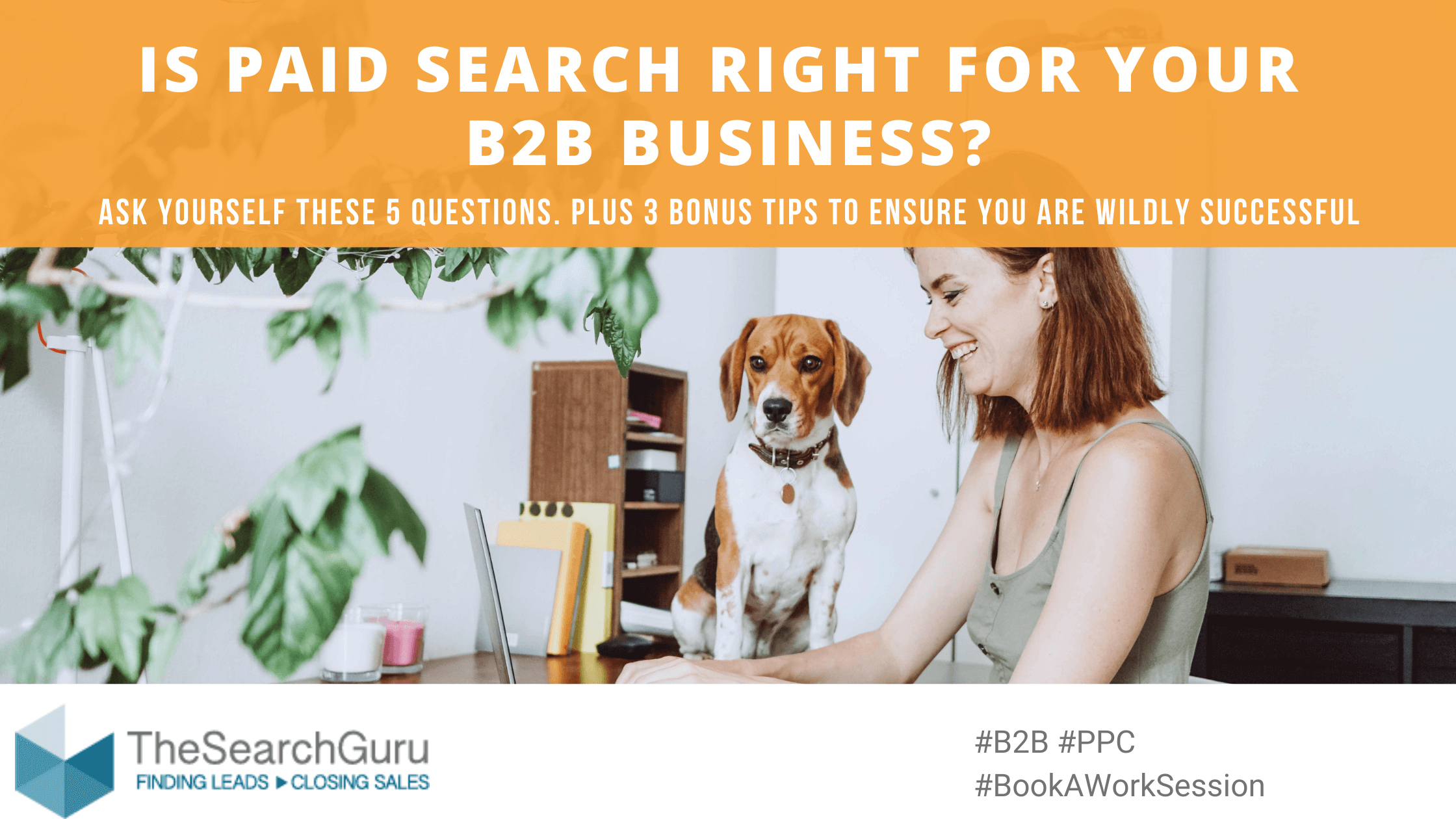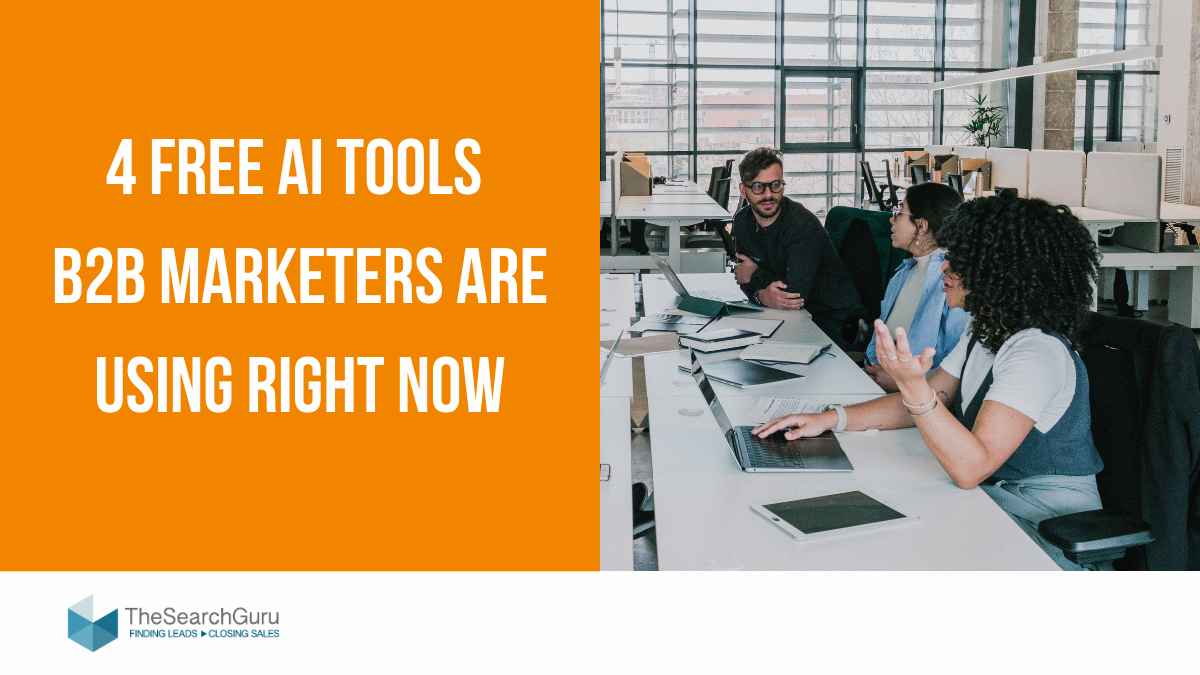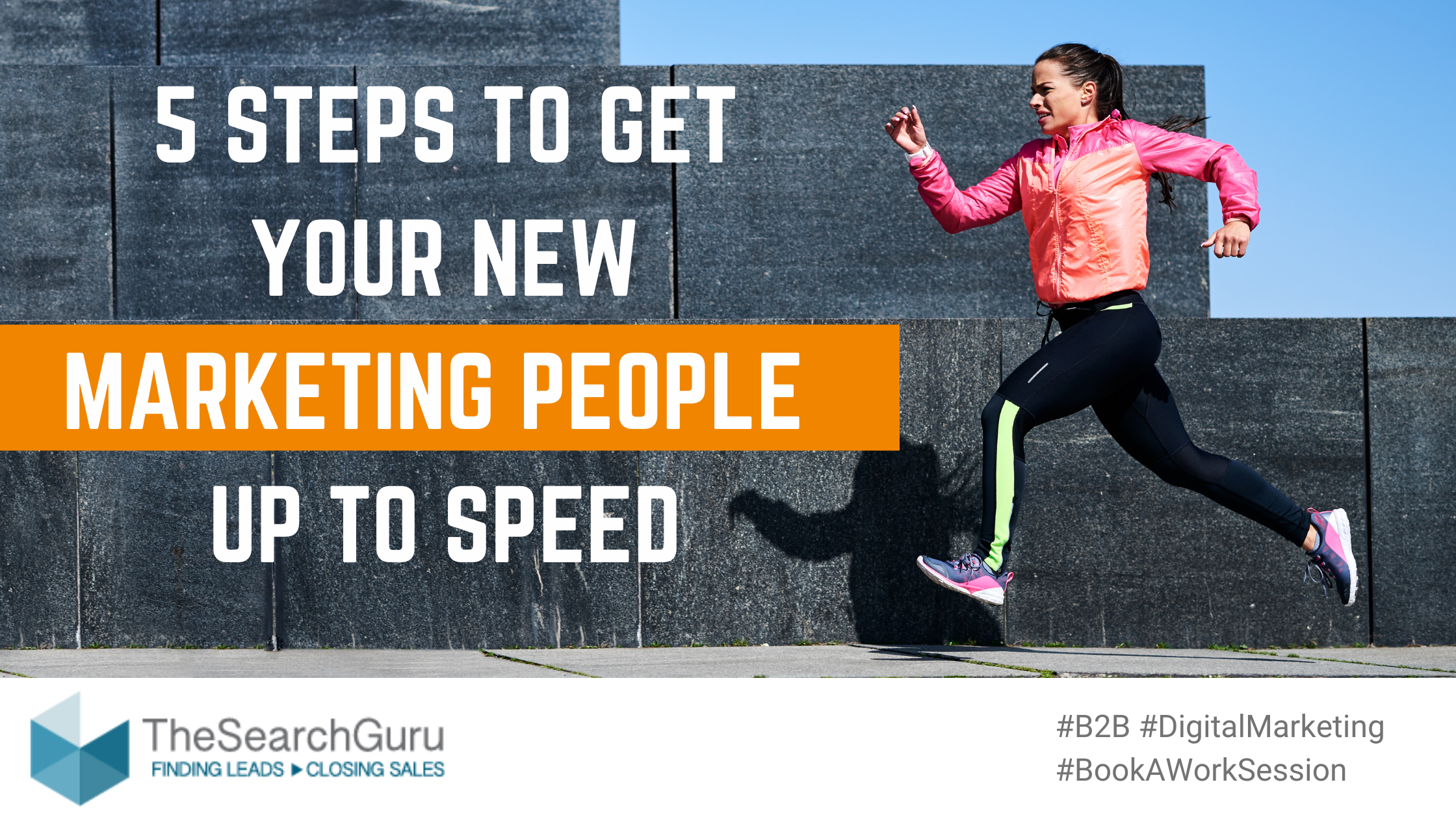To determine if paid search is right for your organization, you need to first ask yourself these 5 important questions.
Question #1: Is there enough search volume for what you offer?
Let’s break this out into two sub questions:
Question #1.1: Are your prospects searching in Google for what you offer?
- For instance, if you offer something new that no one knows about, people won’t be “searching for it.”
- Or if the concept is very complex, and there isn’t one common term to call it, people might describe it differently and each of the terms might end up in very little search volume.
Does this describe your situation? If so, you’d better reconsider investing in paid search and try some other channels.
Question #1.2: If they are searching, is there enough search volume for paid search to work?
The smaller your market, the harder it is to identify profitable search terms and — even when you’ve found a good keyword — turning clicks into conversions and sales can be a real challenge.
It can be difficult for B2B companies to find the right keywords for their niche. In an effort to try and get in front of the right audience, many B2B companies bid on search terms that are superficially related to their offering but don’t actually indicate any relevant search intent. Unfortunately, the wrong keywords can never do anything but drive the wrong traffic… and it never converts.
In short, paid search will work for you if there is enough search volume for what you offer.
Question #2: Is your website set up to convert traffic?
Knowing your target audience is essential to get visitors to your website, but getting them to click on your site and stay there is another factor, you need them to convert – that means they are taking an action on your website, whether it’s buying your products/services, or filling out an online form that will generate leads for your business. If your conversion rate is low, it could have something to do with your landing pages.
Correcting a few problems on your landing pages will turn visitors of your website into leads, and increase your CRO (Conversion Rate Optimization). Take a look at your landing pages and ask yourself these important questions:
- Is your content clear and provides the information your audience needs?
- Do you have a CTA (call to action)?
- Why would someone choose you over your competitors?
If your prospects don’t like what they see on your website, they quickly exit and move onto the next, and that impacts your pay per click. Google and Bing will keep those websites that perform better at the top of the search results, and they are watching. Make sure your website entices visitors, remember User Experience (UX), don’t have a poorly designed website. If you get enough back clicks out of your website, you will pay more for each click and rank lower than other sites that are performing better.
Question #3: Do you want fast results?
Paid search is an excellent channel if you are planning a short-term marketing campaign or want to test a new marketing strategy. With paid search you can:
- Immediately bring visitors to your pages (of course they will come at a certain price).
- See which content and keywords resonate best with the users (this can be the ground level of a future long-term SEO campaign).
- Re-organize your marketing messages and product offerings based on results.
Question #4: Do you need to target a specific audience?
Paid search advertising is one of the most comprehensive way to target your ideal customers. Paid Search will provide a quick turn around in sales because PPC ads reach potential customers quickly.
You can be as specific and narrow down your campaign to reach your prospects using any of the following methods:
- age,
- geographical location,
- gender,
- language,
- device,
- income,
- keywords,
- online activity,
Question #5: Do you have control over your leads?
Every company wants more business. But for this new business to be profitable, there should be good planning. That’s what paid search may provide for your business.
Because you have full control on your budget and spend, you can amplify or reduce the lead flow depending on other business parameters.
Bottom line: The more YES’s you get on the questions above, the higher the chance Paid Search is the right channel for your B2B brand.
And now, a few bonus tips on how to be successful with Google Ads:
BONUS #1: What is a typical conversion rate for paid search?
Conversion rate differs depending on the business, and on average, a really good conversion rate is between 1-2%. That’s a really solid conversation rate. Anything above, such as 2-3%, or even higher, would be amazing.
BONUS #2: Avoid these mistakes in Google Ads:
Google Ads #1 Mistake: Wrong keywords: If you are using wrong keywords and search words, the ad campaign won’t be profitable.
Google Ads #2 Mistake: Updates in the platform: Stay on top of the recent changes in Google Ads. If you are out of date with all the changes, you may be analyzing the results incorrectly. And you’ll definitely miss out on new opportunities!
Google Ads #3 Mistake: Audience: Knowing your audience is key to achieving the results you invested in. When developing a PPC campaign, an advertiser will work with the client to understand their business and target the right audience with keywords that work for that market. This is imperative to the success of the campaign. In addition if the B2B has a specific niche, you need to get creative in order to attract that audience.
Google Ads #4 Mistake: Landing pages: Take a look at your landing pages, if they are too busy or slow to load, that will impact you from having a successful campaign.
Google Ads #5 Mistake: Geography: Target geography is another key element to consider.
BONUS #3: You work hard for your money, don’t throw it away
How not to lose money in Google Ads Rule #1: Use the right Search terms: Paid Search is nothing without the right search terms. Make them specific to your business, so that you can attract the prospects that will convert. Just as important are negative keywords so that you avoid showing up on things that are not relevant to your niche/business.
How not to lose money in Google Ads Rule #2: Content: Having well written and clear content is crucial. On top of well written content is ensuring your ads point to the correct pages on your website. Otherwise, the user will only bounce back and you want to avoid that.
Conclusion:
Both SEO and paid search ads can benefit your business and provide amazing ROIs. But ONLY if you know when to use them for maximum effect. Ultimately, which digital marketing channel you choose and when you use it depends on your goals.
Remember, Paid Search or PPC is a marathon, not a sprint, there are a lot of pieces to the puzzle that need to come together, it involves planning and research. PPC is a value add and another component in a company’s Digital Marketing toolbox that can deliver results.
Based on this information, you may be contemplating on whether to add or improve this particular channel for your business. If you want help to do that and move to the next level of advertising, schedule a work session with The Search Guru today.
Let’s work on this together: book a free work session
All companies we speak with have unique problems, and we’ve yet to find anyone who isn’t primarily plagued by too few resources. Take us up on a free training/work session where we can discuss your unique problems and offer solutions from top B2B marketers. Book one here:






